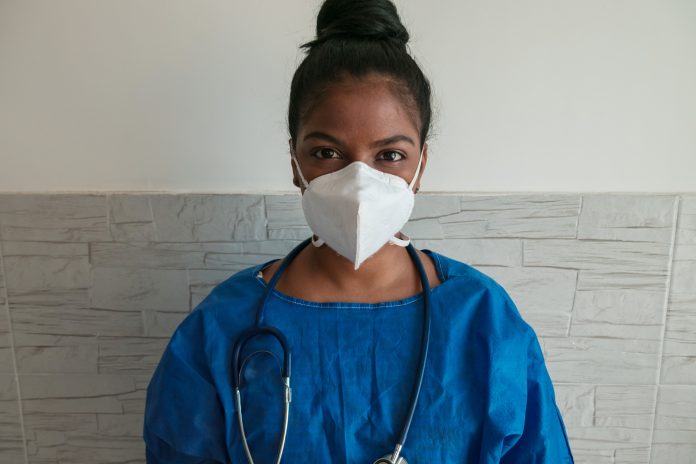European Commission Director General for Health and Food Safety Sandra Gallina details the ambitious EU4Health Programme proposed as a response to COVID-19
2020 will long be remembered for the worst global health crisis in modern times. A virus a thousand times smaller than a grain of sand turned our world upside down and exposed just how delicate life can be. The human and economic costs have been staggering, and our national healthcare systems continue to be stretched today, more than one year since the pandemic began.
But in shining a light on the weak points in our health systems and in our societies, the COVID-19 pandemic has shown us what we need to improve, and how. It has laid bare the strains on our health systems and the limits of a model that values wealth above wellbeing. In response, the EU is taking decisive, collective, and ambitious steps, not only to recover, but to “recover better.” To rebuild, so that we emerge from this crisis with stronger, healthier, more equal and more resilient societies.
EU competences in health are mostly limited to complementing national policies. The EU supports Member States’ efforts to work together, sharing the financial burden and working together to overcome challenges that affect us all. But the pandemic showed very clearly that business as usual was no longer an option.
The EU4Health Programme
And so, 2020 was also the year when we learned lessons from the pandemic, when we listened to our citizens and heard their calls for the European Union to do more in public health. The EU4Health Programme is our answer to those calls, and it sends a clear message that public health is a priority for the European Union.
As part of its next seven-year budget, the European Commission put forward an ambitious EU health programme that puts health at the centre of our recovery. In March 2021, EU Member States and the European Parliament agreed to make EU4Health the largest health programme to date with an unprecedented €5.3 billion over the next seven years.
EU4Health will help us to fulfil the vision for a European Health Union outlined by the European Commission President Ursula von der Leyen in her State of the Union speech last September. And we are already putting those building blocks in place.
For example, the new Pharmaceutical Strategy for Europe sets out a long-term vision for a system that is future-proof and crisis-resilient. It aims to ensure access to affordable medicines for patients, and address unmet medical needs in areas like antimicrobial resistance and rare diseases.
The Beating Cancer Plan represents a new EU approach to cancer prevention, treatment and care. It will tackle the entire disease pathway, from prevention and detection to quality of life of cancer patients and survivors.
EU4Health means that the new Cancer Plan can be a game changer. We can start investing in saving lives without delay, ensuring access to high standard cancer care diagnosis and treatment and laying the foundations to improve the quality of life for cancer patients, survivors and carers.
EU4Health will also protect people from serious cross[1]border health threats by putting into place actions aimed at prevention, preparedness and response such as boosting national stockpiles of essential medical equipment, while also establishing a standby team of medical, healthcare and support staff in times of crisis.
The EU is working to protect the Union against future health crises. To reach this goal, the EU is setting up the European Health Emergency Preparedness and Response Authority (HERA) that will both provide expert advice and technical assistance in case of a health crisis.
We will also extend the role of existing EU agencies, which have supported the fight against COVID-19. The European Centre for Disease Prevention and Control (ECDC) and the European Medicine Agency (EMA) will both play leading roles in early detection of communicable diseases, recommending measures for controlling outbreaks or providing advice on medicines and mitigating shortages. Elsewhere, EU4Health will improve access to medicinal products, medical devices and other products relevant in a crisis as well as encourage innovation and sustainable production to reach this goal. More diverse supply chains and a more conscious, efficient use of medicines will also aid the effort to ensure medicinal products are available and accessible when needed.
Financial support will nurture national health systems by making access to healthcare easier, improving health data and making more health data and services digital.
Building more accessible and more resilient health systems is a complex undertaking, and we need to maximise every tool available to us. Digital innovations and technology offer immense potential in this regard. Member States need to work together to build up their digital infrastructure and share health information in a better way across borders to improve the health of citizens no matter where they live in the EU. EU4Health will provide the means to create a European Health Data Space and use health data to improve healthcare provision and research and innovation.
These are ambitious but necessary goals, and the EU is committed to achieving them. However, we cannot act alone; cooperation between Member States will be more important than ever. The EU will play a larger support role to its Members, while beyond our own borders, EU4Health will allow us to invest more in partnerships to face global health challenges such as zoonotic diseases or antimicrobial resistance, to improve health and reduce inequalities.
There is no going back. The EU has learnt its lessons and is taking decisive action by embarking on the road to a better future. EU4Health is opportunity to emerge from this crisis with a stronger vision, one that makes EU health policy and healthcare systems across Europe fit[1]for purpose. Health as a major policy priority is here to stay, and so is EU4Health.
Further priorities for health in Europe
Europe is optimistically looking ahead to meet its target of vaccinating 70% of the adult population by July, and European Commissioner for Health and Food Safety Stella Kyriakides recently stated that “while this is of course very positive news, vaccines cannot be our only response to COVID-19.”
The mental health impact of COVID-19 is something that Commissioner Kyriakides is currently drawing attention to, as the impact is far-reaching and immensely crosscuts society.
“For nearly a year and a half now, our physical health, our livelihoods, and our economies have been turned upside down by COVID-19. But behind all of this, an unseen mental health emergency is sweeping across the European Union and beyond. Like a silent pandemic,” stated the Commissioner.
Experts across the globe are now warning that there is an incoming tsunami of mental health problems that will need to be supported and treated post COVID-19.
Thus, Europe needs to make sure it is placing mental health front and centre in its pandemic response.
Commissioner Kyriakides added: “I want to remind you of the World Health Organization’s definition of health: a state of complete physical, mental and social well-being, and not merely the absence of disease or infirmity. And as we recover from COVID[1]19 and answer the needs of people across the European Union, as we look ahead, and imagine a healthier, more resilient, and fairer Union, I want this definition to be our benchmark.”











